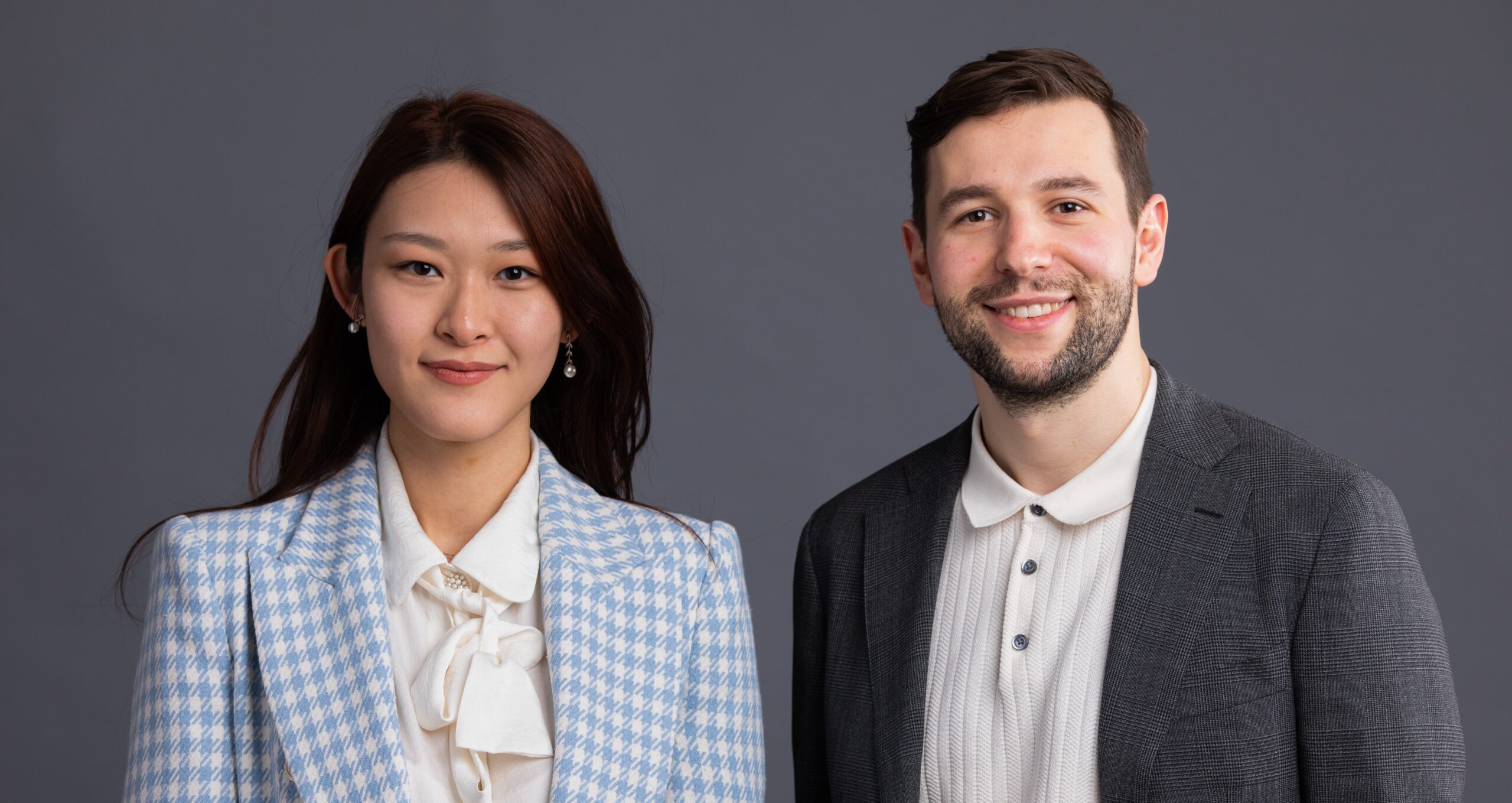What is Summation?
Q: Can you provide a brief overview of Summation and its background?
A: Summation is a company that originated from the Entrepreneurs First accelerator program. Specifically, we were part of the TO2 cohort, which was the second cohort in Toronto.
The foundation of Summation was laid when my co-founder, Lazar, and I first crossed paths at UNCT. Our shared experiences in the realms of academic publishing and education served as the catalyst for our startup journey.
Prior to founding Summation, I had recently exited from a scientific translation agency specializing in academic publications and university publishers. Our agency provides translation services in 26 languages. My background includes a recent Ph.D., teaching experience, and previous work in edtech technologies.
Our mutual fascination with the potential of AI adoption in mainstream educational institutions was a driving force behind Summation’s inception. We envisioned using AI to transform academic publications into educational resources, offering a cost-effective alternative to traditional, often outdated textbooks. We aimed to empower educators and students by facilitating AI-driven teaching and learning.
The rise of generative AI technology further fueled our vision, allowing Summation to provide AI textbooks and various educational resources to universities and professors, including quizzes, discussion questions, and test and essay questions. This background shapes the trajectory of Summation’s journey in the educational technology landscape.
Entrepreneurs First Application
Q: Can you walk us through the Entrepreneurs First application process briefly?
A: The application process can vary from cohort to cohort. Based on my experience, it involves several stages. The process begins with filling out an online application form. Following that initial step, candidates are invited to a series of interviews with the talent team at Entrepreneurs First.
The interviews cover various aspects, from behavioral to technical, and the amazing part is that you will have an opportunity to meet other like-minded individuals. In my application, the behavioral and technical interviews were conducted on the same day through a group interview. They focus on the founder’s unique edge to build within their chosen space, their risk tolerance, and their aptitude and ability to think outside of the box. They ask thought-provoking questions and want to delve into your past experiences, motivations, and ambitions for the future.
After you are accepted into the program, it does not guarantee graduation or funding. You will go through the process of matching with another co-founder and passing the investment committee. The application only ends after you have secure the funding.
Q: Do you have any tips to share for this process?
A: EF looks for a diverse group of people from all walks of life, so I don’t believe the objective is to engage in extensive preparation for these interviews. Instead, it’s about showcasing what you’ve accomplished and what you aspire to achieve with Entrepreneurs First as your partner.
Therefore, a tip to fellow founders is to stay true to your vision as that is the best way for them to get to know you.
Inside Entrepreneurs First Program
Q: After acceptance into Entrepreneurs First, what’s the next step? Could you guide us through the initial stages?
A: Once accepted, the program kicks off with an orientation. It’s a week-long event to meet your fellow cohort members, discuss program expectation and learn more about taking an idea 0 to 1 from founders who have gone through the Entrepreneurs First program.
The next stage is co-founder matching. EF hosts many events and discussions to encourage you to meet and start conversations, they also provide you with all the tools you need evaluate co-founder from skill-set to complitiability to shared vision. EF recommends breaking up a partnership fast if things didn’t work out and it is normal to go through with several matches before you find the right one.
Once you have found your co-founder, you will explore and validate ideas together. As a team, you will do customer discovery, work on MVP, do market research with a goal of obtaining proof that this idea can be commericalized and is solving a big problem. Ideally, you want to obtain letters of intent (LOIs) or users on your MVP to demonstrate to the investment committee that your solution have potential.
The best thing about Entrepreneurs First is the guidance and support you receive from the staff and mentors. It is a competitive and intense few weeks, but you will have check-ins with your mentor every week to ensure that you are on the right track.
Q: Can you tell us how long the Entrepreneurs First program lasts?
A: The Entrepreneurs First program is a six-month program divided into two phases. The first three months are dedicated to co-founder matching and validating your idea. If you pass the investment committee, you will move on to the next phase of building your startup and preparing for seed fundraising.
Q: Can you elaborate on the mentorship and coaching provided by the Entrepreneurs First program?
A: It’s a great program for first-time entrepreneurs. In my cohort, they provide support in various areas: idea generation, validation, market research, hiring, fundraising, customer discovery, sales strategies, and building a minimal viable product (MVP). The program pairs participants with experienced mentors from the startup world. My mentor during TO2, Kyle Boulay, was fantastic; he is a great teacher.
Other than one-on-one coaching, the program also immerses you in a supportive ecosystem where you can interact with accomplished founders and VCs.
Q: Did you receive any financial support from the program?
A: We received $100k in SAFE upon passing the investment committee. They might have changed the amount after our cohort, and the funding varies depending on the region your cohort is based in.
Q: Besides financial support, what were the most significant advantages you gained from participating in the Entrepreneurs First program?
A: Beyond the funding, Entrepreneurs First offers several invaluable benefits that greatly support early-stage startups. One of the standout advantages is the opportunity to immerse oneself in a vibrant startup community. For first-time entrepreneurs, this is a crash course in building a startup, but it’s the real deal, a true-to-life version.
Mentorship is another pivotal aspect of the program. It covers a broad spectrum of essential topics, providing guidance on finding your initial idea, validating it based on your experience, and obtaining market proof of its commercial viability. The mentorship extends to vital areas like team building, fundraising, customer discovery, sales, and creating a minimal viable product (MVP).
Furthermore, the program’s strong ties to the startup ecosystem can be a game-changer, especially for entrepreneurs seeking funding. Entrepreneurs First facilitates introductions and accompanies startups to crucial conversations, offering them excellent exposure. This exposure not only boosts startups’ visibility but also enhances their opportunities for securing external investment.
In summary, Entrepreneurs First is more than just a funding source; it’s an ecosystem that equips startups with the knowledge, mentorship, and connections needed to navigate the challenging startup landscape successfully.
Q: Can you share any insightful moments or surprises from your journey in the program that left a lasting impact or inspiration?
A: One concept that significantly resonated with me during the program was the continuous emphasis on “the edge.” It’s a term you hear from day one and throughout the six months, and it plays a pivotal role in shaping successful companies. This notion revolves around how your past experiences lead to your current venture.
The program places a strong emphasis on seeking individuals who can leverage their prior experiences or expertise. This might entail having previous entrepreneurial experience, domain knowledge in a specific industry, or possessing unique technical skills that set them apart. Essentially, it’s about cultivating an edge that sets your startup apart from the rest.
Before joining Entrepreneurs First, I hadn’t truly contemplated this concept in such depth. The program offers a systematic approach to company creation, complete with underlying theories. In contrast, my previous approach was more trial-and-error, where I came up with an idea, worked diligently, and hoped for success. The structured guidance provided by the program is immensely valuable in ensuring that startups have a well-thought-out strategy from the outset. It’s been an eye-opening experience to witness company creation unfold in such a systematic and deliberate manner.
In essence, Entrepreneurs First has redefined how I perceive the journey of building a startup, highlighting the importance of having a distinctive edge and a strategic approach to innovation.
Current Status of the Company
Q: Can you provide an update on the current status of your company following your participation in the Entrepreneurs First program?
A: After completing the Entrepreneurs First program, we went on to raise another round of funding. Currently, we have successfully launched the first version of our product. In fact, I’d like to take this opportunity to extend an invitation to anyone who may know professors or universities interested in teaching with academic papers. If they are seeking a low-cost, highly efficient alternative to traditional textbook workflows, we encourage them to get in touch with us. We’d be more than happy to provide a demonstration of our product.
Our primary focus now is on serving our university and professor customers diligently. We’re dedicated to delivering a valuable and efficient solution for educators who wish to incorporate academic papers into their teaching methods.
Q: Your website highlights partnerships with numerous universities. Could you share how you managed to establish these partnerships and the growth channels you utilized to reach them?
A: Our journey to partner with universities involved several strategies. Initially, it began with direct outreach and customer discovery. These early adopters witnessed our product in its infancy and have continued to support us.
Now, we’ve expanded our approach. In the realm of B2B, especially in the education sector, having distribution partners is crucial. We’ve forged partnerships with academic publishers to help distribute Summation to their customer base. This partnership involves a profit-sharing model, benefiting both parties. Academic publishers typically have extensive networks of universities and professors, making it a highly effective growth strategy.
By leveraging the established reach of the academic publishing industry, we’ve been able to expand our presence and offer Summation’s solutions to a broader audience. It has proven to be a successful strategy for us.
Q: What are your upcoming goals for Summation?
A: We have several exciting goals on the horizon. First and foremost, we’re focused on rolling out a more comprehensive solution by winter 2024, enhancing our product to better serve our users.
In terms of sales and partnerships, our aim is to further grow our revenue through academic publishers and by expanding our reach to more universities and professors. These partnerships are crucial for our continued success.
Moreover, we’re in the process of expanding our team. We have openings for developer and sales positions this fall. If anyone is interested in joining Summation, we encourage them to apply and be a part of our journey!
What Founders Should Know
Q: Do you have any final tips for founders thinking of applying to Entrepreneurs First?
A: I would encourage anyone considering applying to Entrepreneurs First to go for it wholeheartedly. It’s an incredible experience, especially if you’re a first-time founder or someone transitioning from a different industry into entrepreneurship. The program is designed to help you find an idea and bring it to life.
My advice is not to hesitate. Stay true to your experiences and your beliefs. Don’t feel pressured to start a business solely based on current trends or what you see in the marketplace. Instead, focus on building a business that addresses a real problem and provides a valuable solution in an industry you’re familiar with. Trust in your vision and take that leap of faith. Entrepreneurs First can be the platform that helps turn your entrepreneurial dreams into reality.


